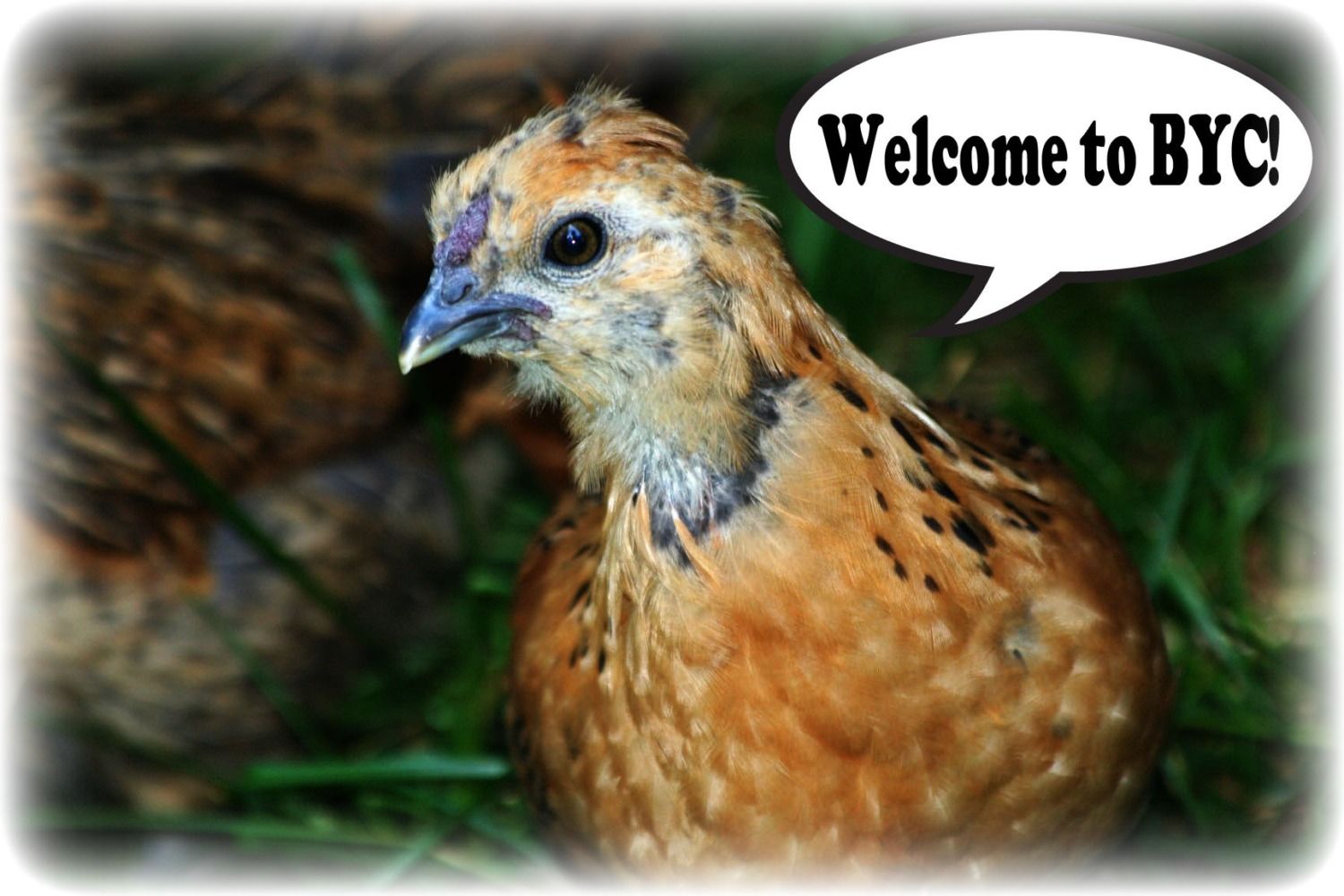- Jan 4, 2012
- 1
- 0
- 7
Hello, I live in the UK and having spent some years helping out at my local city farm, I am now planning on getting my own chickens. We have a big garden, but are just in the planning stages. I joined the site because it seems like a friendly place to find help and advice. Being a complete novice to chicken keeping, I want to make sure I give them the best care I can by reading up thoroughly first and speaking to as many owners as possible. Is there a part of the site where I can ask basic questions about chicken rearing? I basically need a list of essentials and space requirements etc, and I prefer chatting to actual owners than putting my blind faith in google! Thanks, looking forward to exploring the site + hopefully acquiring some chickens in the near future!










